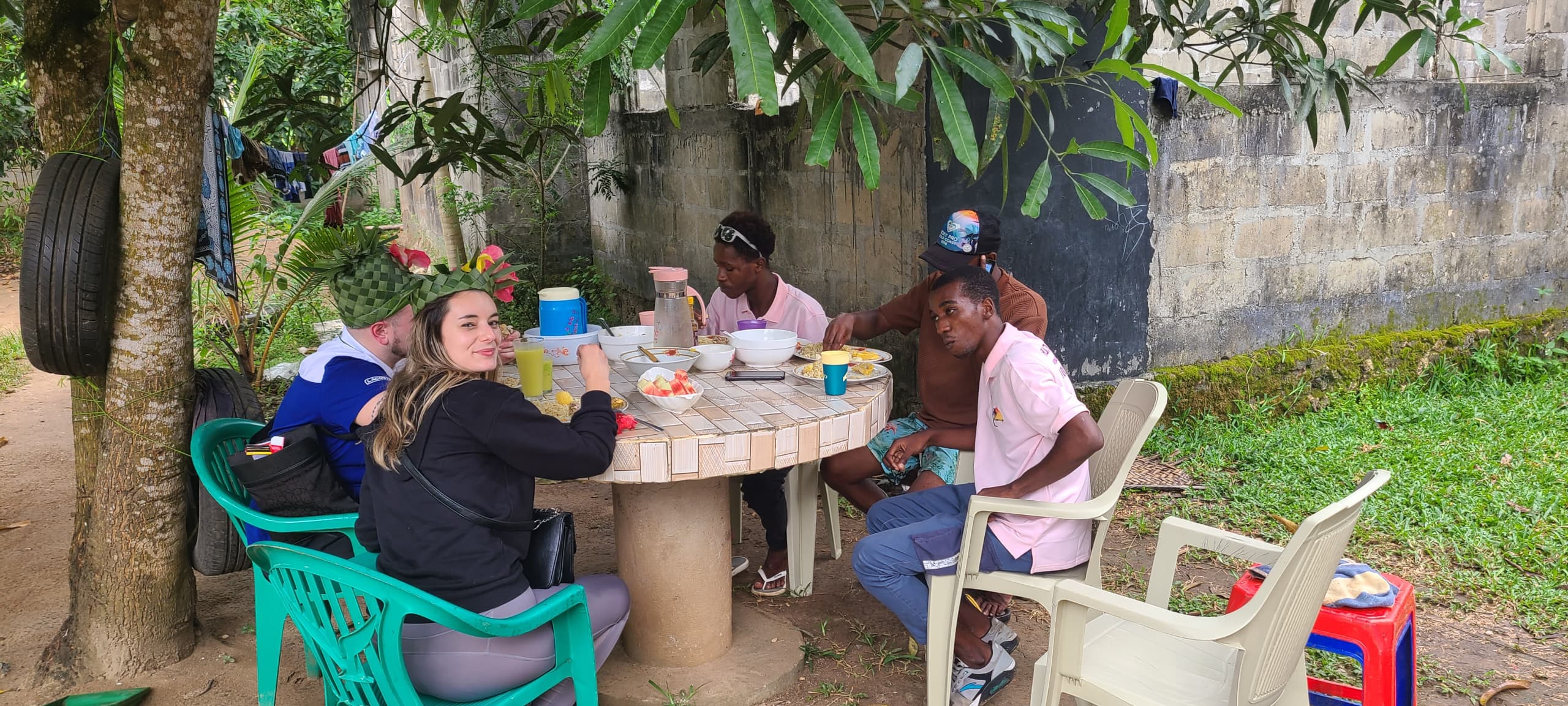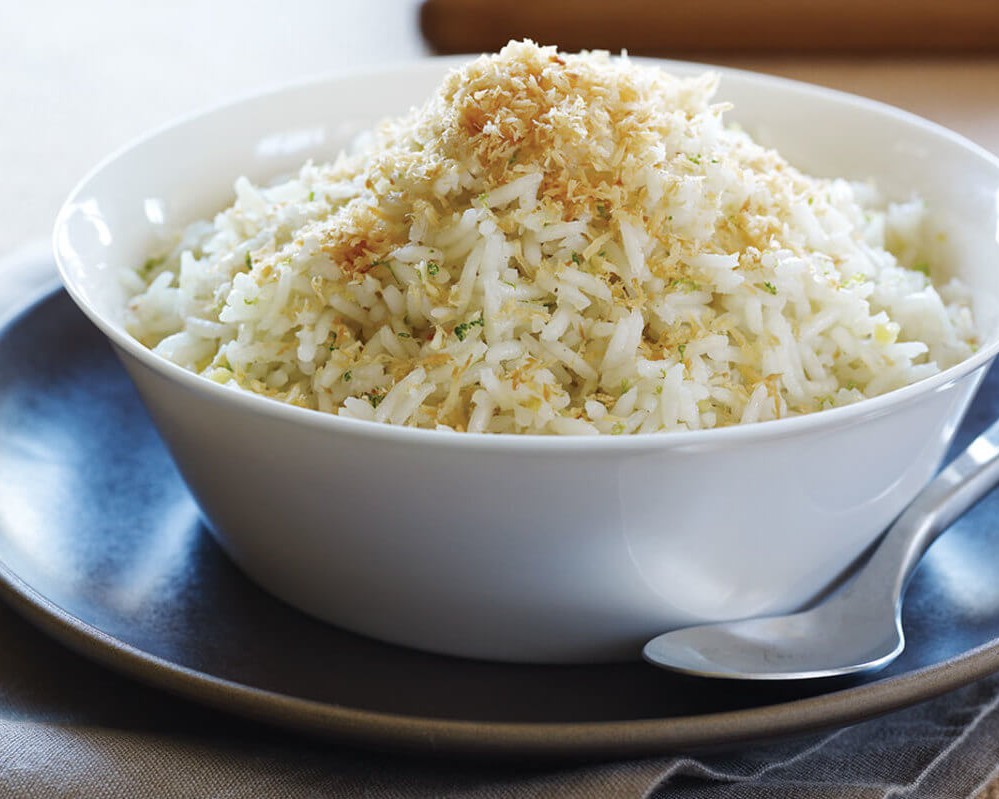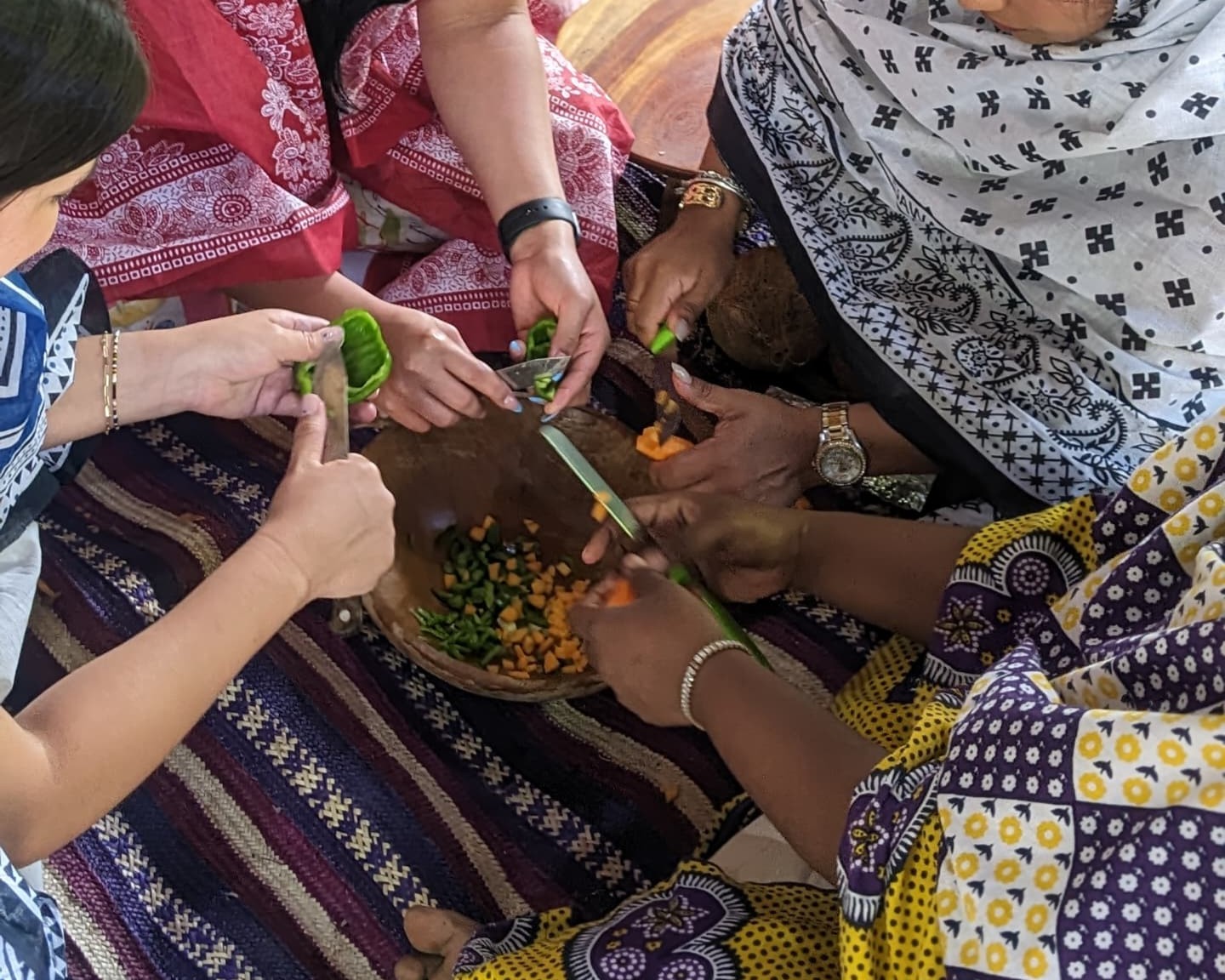CULINARY TOURISM, GASTRONOMY OR FOOD TOURISM
Culinary tourism or food tourism or gastronomy tourism is the exploration of food as the purpose of tourism. It is considered a vital component of the tourism experience. Dining out is common among tourists and "food is believed to rank alongside climate, accommodation, and scenery" in importance to tourists.
Gastronomy is the study of the relationship between food and culture, the art of preparing and serving rich or delicate and appetizing food, the cooking styles of particular regions, and the science of good eating.
Culinary tourism includes the active pursuit of unique and memorable eating and drinking experiences, as well as agritourism experiences that connect what is being grown and produced in an area to what is being prepared and enjoyed by locals.
Cooking classes, visitor-friendly food markets and packaged food tours can help food tourists increase friendships with other tourists, familiarize themselves with farmers, cooks and food producers, or engage with local chefs.
Zanzibar Village Tour
Experience rural life in Zanzibar on this village walking tour in different location. In the company of a guide, meet a women’s pottery group and hear about their craft. Visit rural life activities. Take a break to taste traditional Zanzibari cuisine for lunch.

Cooking Lesson
Our clients will practically learn how to prepare and cook our local food.
The cooking class include a trip to the local market, wearing local clothes.- The traditional and historical context of dishies are available.
- Our Swahili cooking lessons are a fun way to discover the essence of Zanzibar, which is referred to as the Spice Island because of its wide range of spices that provide flavor to local cuisine.
- Cooking with local chefs.
- During the lesson you can pick and use (farm to table) : depend on the season ( Banana, Mango, Jackfruit, Custard apple, Sugar cane, Papaya, Avocado, Letches, Passion fruit, cloves, cinnamon, grape fruit, coconut, lemon grass, pomegranates, curry leaves, hot chilies, cassava leaves and sweet potato leaves and lipstick fruits.
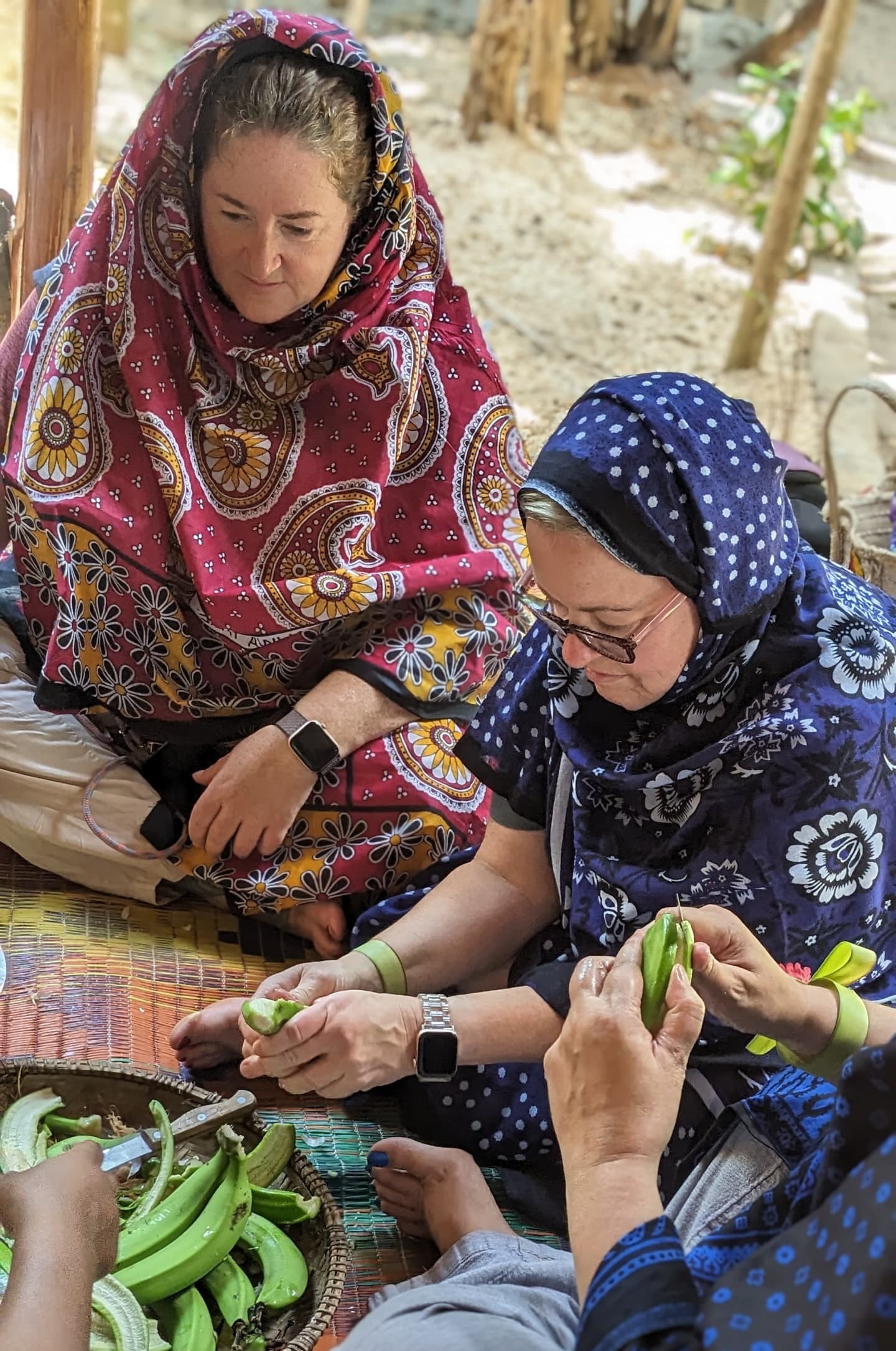
Lunch
- We intend to provide pure taste of Zanzibar local foods and organic fresh juice with other recommended drinks by customers.
- Local food often has a superior taste due to being fresher and riper when consumed. Since local food travels a shorter distance, it doesn't need to be harvested early and can be allowed to fully ripen on the plant, maximizing its flavor and nutritional value.
- In Zanzibar, for instance, you may sample the distinctive flavors of dishes like Wali Na Maharage, a tasty blend of rice and beans served with veggies, and Octopus Curry, which blends succulent octopus with regional spices and coconut milk. Another well-liked street dish that offers a taste of Tanzanian cuisine is mshikaki, or grilled beef skewers.
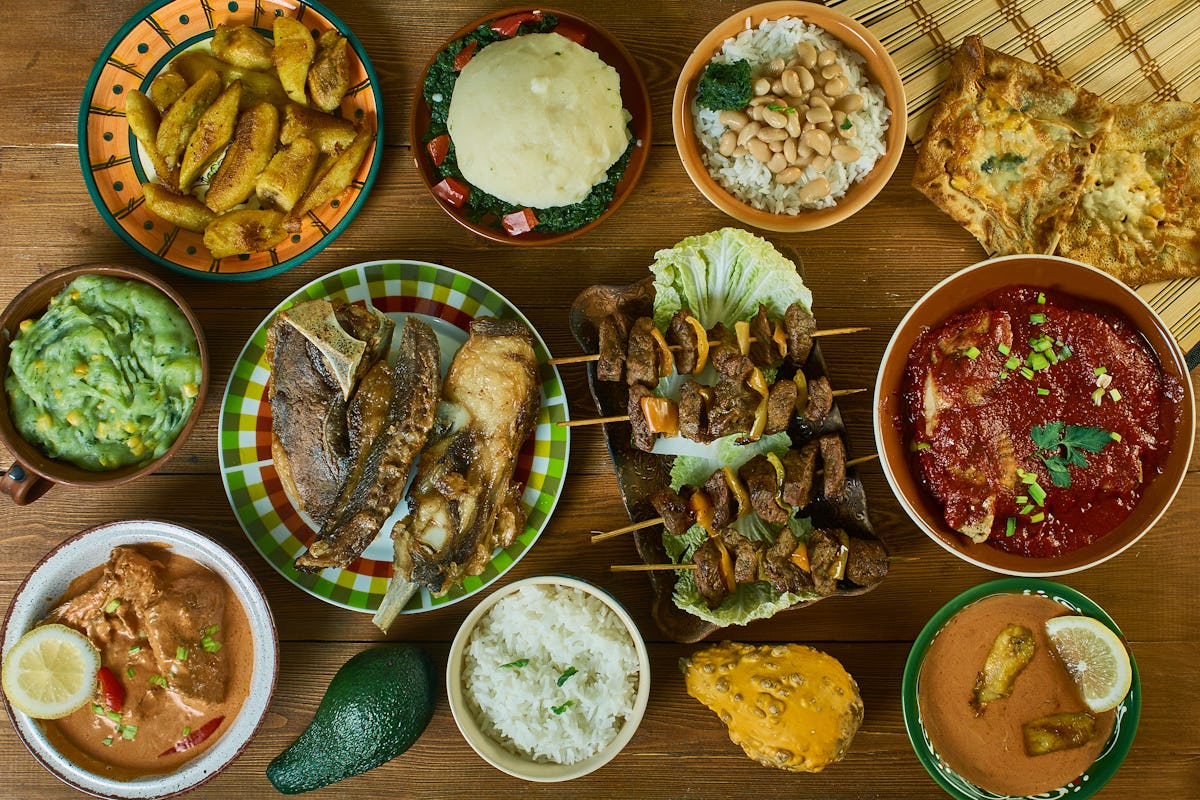
Dafu Package
Zanzibar dressing (Kanga for women& kofia for man) tailor made base.
Walking to the local market for kitchen shopping.
Pick and use (farm to table) : depend on the season ( Banana, Mango, Jackfruit, Custard apple, Sugar cane, Papaya, Avocado, Letches, Passion fruit, cloves, cinnamon, grape fruit, coconut, lemon grass, pomegranates, curry leaves, hot chilies, cassava leaves and sweet potato leaves and lipstick fruits.
Cooking lessons with local chefs.
Lunch of the cooked food.
Organic juice (Avocado, Passion fruit, Mango,Carrot, Lime,Lemon,Cucamber….),pure ginger drink and pure Zanzibar coffee.
Zanzibar local house experience (mud house).
Agro tour and local village experiences.
